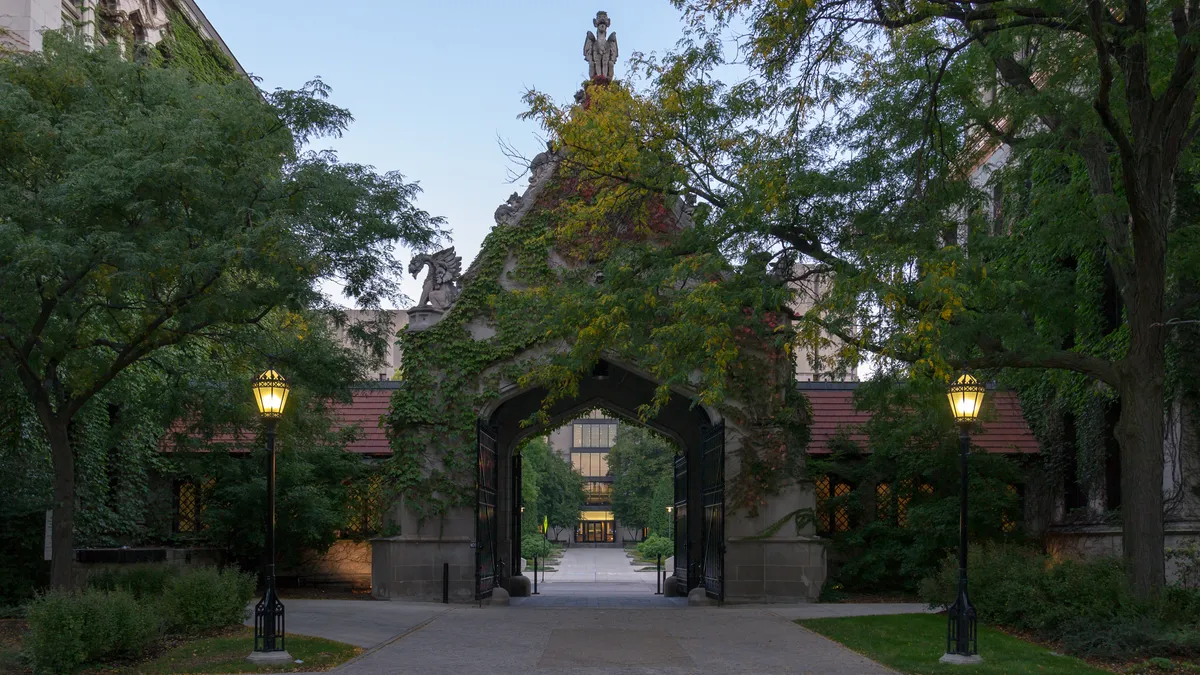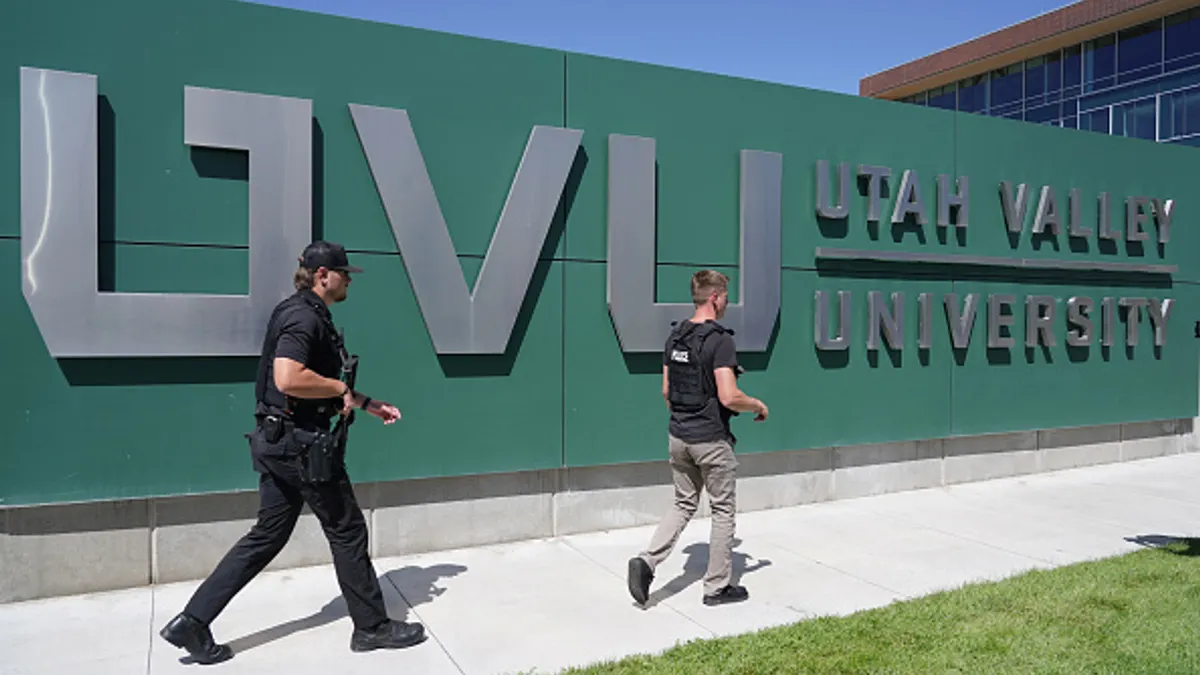The coronavirus pandemic is making the job of college career services staff a lot harder. As they adapt to working virtually, they're also responsible for helping students navigate a job market quickly upended after months of near-record-low unemployment rates.
Shelter-in-place orders meant to stem the virus's spread have disrupted several industries — including hospitality, travel and retail — and contributed to a record 17 million unemployment filings in just three weeks. Moreover, 60% of companies reduced their job listings and nearly 25% have closed their postings altogether in the past month, according to new data from Glassdoor.
Graduating seniors aren't the only ones hurt by a contracting job market. Large companies such as Google and American Airlines are scaling back or canceling their internship programs this summer, according to a tracker kept by Thrivecash, a startup that loans students money based on their offer letters.
Colleges are trying to keep up. Their career services offices are hosting virtual networking events, talking students through hurdles they're facing on the job hunt and helping them craft contingency plans in the event that their offers are rescinded due to the pandemic.
"More of the counseling element comes into play," said Cheryl Hicks, associate director for career education and coaching at Wake Forest University, in North Carolina. "It's important for us as coaches to realize that and not only tell (students) it's going to be all right but why it's going to be all right."
Here are three ways career services offices can help students find jobs or internships — or replace those they already had lined up — during the pandemic.
Let students know you're available
After the pandemic shuttered campus, career services staff at Wake Forest began holding information sessions and one-on-one consultations with students through phone calls and video chats.
But they knew reaching out to students would be important as well. Five of its career coaches conducted a campaign called Love Notes, in which they sent emails to their caseload of students saying they were there to help.
"There were no links added, there were no resources, just 'We're here for you in this time of uncertainty,'" Hicks said, adding that they didn't want to pressure students into setting up appointments during an already stressful time.
A few days later, they sent another wave of emails. This time, they were personalized by providing links to resources and following up on the topics they discussed last with their career coaches.
"That has taken a lot of time," Hicks said, noting the team sent emails to thousands of students. The effort paid off, however, with student responses pouring in as they seek help figuring out their post-graduate or summer plans.
Plan ahead for virtual events
Colleges can learn from companies that have experience with online events. CodePath.org, a nonprofit that works with colleges to build a pipeline of underrepresented students for the tech industry, holds an annual virtual career fair that attracts employers such as Facebook, Slack and Microsoft looking to fill internship positions and entry-level jobs.
But its CEO, Michael Ellison, cautions colleges against thinking they can quickly move an already scheduled event online. "It's different than an in-person career fair because every interaction needs to be planned," he said in an interview with Education Dive.
"More of the counseling element comes into play. It's important for us as coaches to realize that and not only tell students it's going to be all right but why it's going to be all right."

Cheryl Hicks
Associate director for career education and coaching, Wake Forest University
To keep the event organized, CodePath matches companies with anywhere from 20 to 90 students for short interviews. This structure can help students and companies take the interview process more seriously, said Peter Akala, a student enrolled at both the College of Southern Nevada and Western Governors University, in an interview with Education Dive.
Career fairs often "can be a bust," he said. "Companies just show up but they're not seriously pursuing candidates." His experience with CodePath's virtual fair, however, netted him two internship offers, one of which he accepted.
Colleges should work out the kinks in virtual events now. If the pandemic stretches into the fall — a key time for job recruiting on campus — "it's going to make things like virtual job fairs ever so important," said Tim Luzader, executive director of Purdue University's career services office.
Help students make contingency plans
As many internship programs go remote, colleges should also prepare their students to work from home, which requires a different set of skills than what's needed in an in-person environment, said Shawn VanDerziel, executive director of the National Association of Colleges and Employers.
"There tends to be a shift in how you demonstrate your value," he added. With less opportunity to chat with co-workers, for example, the ability to communicate well in writing becomes even more important.
Students whose summer plans have changed will need guidance from their career services offices. To help, Wake Forest created a guide detailing what they should do in several common scenarios, including if their job or internship offers have been rescinded, or if they haven't yet begun their search.
"We're working with a generation that is (saying), 'Give me a checklist, give steps to take, give me something I can click on day or night,'" Hicks said.
Students may have to pivot to a different industry altogether if the one they planned to enter is floundering amid the pandemic, VanDerziel said. In those cases, the career services office can use tools such as personality tests to figure out other fields students could apply their skills.
Connecting with alumni can also help. The University of California, San Diego, held a virtual event over spring break in which more than 500 students connected one-on-one with alums to learn about different industries and career paths.
The event is one of the ways the university is hoping to help students consider "all the opportunities out there," said Kris Hergert, executive director of the college's career center, in an interview with Education Dive.
"They've got a long trajectory ahead of them," he said. "We want to make sure they have a good outcome and good destination."
















